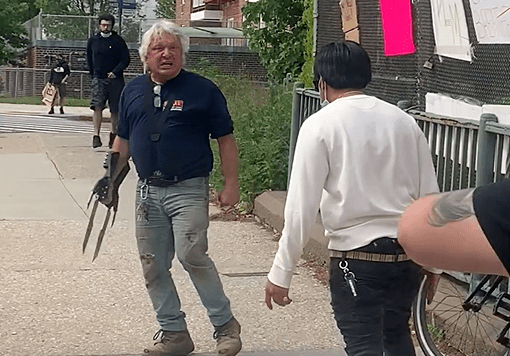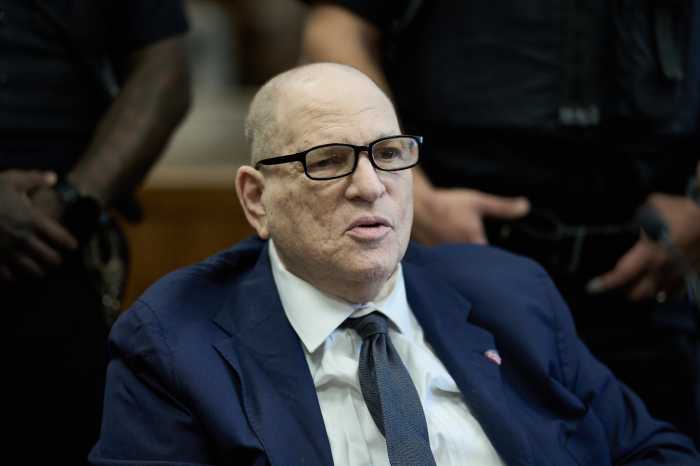The Flushing man, who became known as the “Whitestone Wolverine” following his bizarre assault on Black Lives Matter protesters in June 2020, was sentenced in Queens Supreme Court Tuesday to 14 years in prison.
Frank Cavalluzzi, 58, of 150th Street, was convicted by a jury in August on nine counts of attempted murder and other crimes for charging at them wearing a glove with serrated blades and then attempting to run them over while driving his SUV on the sidewalk in Whitestone.
According to the charges and trial testimony, on June 2, 2020, at approximately 3:45 p.m., at the intersection of the Cross Island Parkway service road and Clintonville Street in Whitestone, a group of peaceful demonstrators calling for justice after the police killing of George Floyd in Minneapolis hung up signs and posters in support of Black Lives Matter.
Cavalluzzi came upon the demonstrators while driving, abruptly stopped his SUV across the street and began screaming profanities and racial slurs, including, “You are in the wrong neighborhood.”
He then made a U-turn, exited the vehicle wearing four serrated blades attached to a leather glove strapped to his right arm and chased several of the demonstrators while waving the bladed glove and screaming at them.
Cavalluzzi re-entered his vehicle and yelled, “I will kill you,” before driving onto the sidewalk at the demonstrators, according to the charges. Cavalluzzi drove along the length of the overpass, sending the protestors into the roadway and onto the fencing of the bridge. He then drove away from the scene.
Cavalluzzi was arrested by police from the 109th Precinct in Flushing two days later, on Thursday, June 4.
“A dangerous man is being held accountable for unleashing terror on peaceful demonstrators who were simply exercising their First Amendment right,” Queens District Attorney Melinda Katz said. “Thankfully, the victims were not physically harmed, and we secured justice on their behalf.”
Queens Supreme Court Justice Michelle A. Johnson sentenced Cavalluzzi to 14 years in prison to be followed by five years post-release supervision.



































